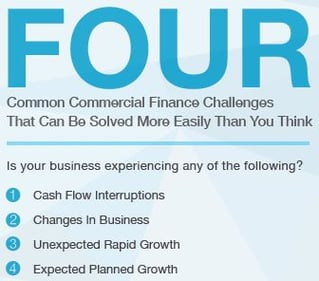
Your company’s ledger looks healthy, but you may notice that some of your customers are slow to pay their outstanding invoices. This can create an unplanned cash flow crisis for your business. It is very common that customers will pay late. An inability to keep up with operating costs can mean losing your staff, as well as your valued customers and jeopardizing the business.
Cash flow interruptions can happen even with a financial plan in place. It does not mean there has been a decline in sales, or a drop in profit margins. Your sales may well be higher than ever, but the inability to pay your bills on time can be devastating. Financial institutions may reduce or freeze your lines of credit. Vendors often have short payment terms and if your customers take a long time to pay this could adversely affect your cash flow.
Invoice factoring can help your business by providing money now for invoices due to be paid in 30 – 90 days. The ability to offer early payment to suppliers even though customers have yet to pay can result in a more balanced cash flow.
A change in business can be as simple as a key client deciding to leave you, and purchase from your competition! Changes like this can create a huge challenge to your business. Even so, new business opportunities may be on the horizon, and your business may appear to be healthy overall. However, any unplanned change that affects the financial stability of your business can change the working capital ratio, and also create a change in credit status. This can also occur when your clients pay late, which puts your working capital in jeopardy. This could delay your
ability to take on new clients, pay suppliers or invest in equipment. Once the momentum is lost, the potential new client may choose to do business with one of your competitors.
If there is a significant drop in sales, a change in working capital ratio may take place. Traditional financial institutions may reduce loan availability, or freeze lines of credit. Once access to funding is limited, it can be hard to continue to pay bills.
When you expect traditional forms of financing to be available, and find it a challenge to secure a credit increase, invoice factoring can help cover the short-term affects of many unplanned business changes. Funding decisions are not based upon the creditworthiness of a company, rather the customers’ ability to pay bills on time.
An unexpected rapid increase in sales can lead to higher profits, but there are inherent challenges when unexpected rapid growth occurs, such as:
It is important to carefully evaluate if the new demand is here to stay or if it is just a temporary or seasonal surge. If the increase in sales is constant, adaptation of your business to allow for the sudden growth is vital to keep up with the new demand.
Invoice factoring is a form of business finance that allows you to get cash now for your outstanding invoices due to be paid later. It is a reliable alternative to traditional lending that may not be readily available during a period of unplanned growth.
A well-run and executed business strategy has culminated in your decision to proceed with carefully planned business growth, and this is an optimum way to reach your business goals. However, additional cash is often needed to invest in resources, including people and equipment. Generally a business that has planned to expand has a vision of a larger enterprise. The goals frequently fall into the following categories:
Planned growth may be simpler to manage than unplanned growth as the potential pitfalls may have been considered, and a strong sales and a marketing plan may have been put in place. However, don’t forget to include a financial plan. What is the best financial option in the long run, and what could be considered in the interim?
If the additional cash is not forthcoming, your decision to grow may be shelved for a period of time, and the opportunity to expand may be lost. There is always the uncertainty when moving to a new product or service that the success is not as planned which can result in financial downturn and leave the business with significant debt to pay off.
Invoice factoring provides cash now from outstanding accounts receivable due to be paid later, to cover operating costs and allows breathing room for planned growth. It is an effective alternative form of commercial financing that does not involve over commitment on loans or lines of credit, but rather uses money owed as collateral.

If you are interested in learning more about Invoice Factoring and how it can help your business, check out "The Complete Guide to Invoice Factoring".
If you would like to speak to someone about how Invoice Factoring can help your business, please contact us or call 888-229-9993.
Copyright © Bay View Funding. All Rights Reserved.
All California loans made or arranged pursuant to a California Finance Lenders Law License 603 8709